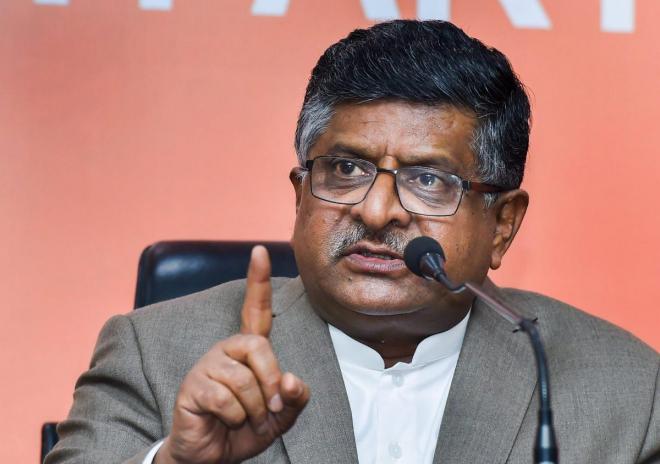Ravishankar Prasad, the Union Electronics and Information Technology Minister has sent a stern message to social media companies with his latest statements which prove that India is working in the direction of keeping its citizen’s data within the country.
Addressing the G20 Digital Economy Ministerial Meeting through video conference, Ravishankar Prasad iterated that data is very important for the growth of the digital economy and there is a need to balance different aspects such as innovation, enterprise, and safety. However, sounding caution over the storage of data and the perpetuated issues with it, Ravishankar Prasad asserted the need for ensuring data sovereignty.
“Yes, we understand the issue of data innovation, data crossflow but we also need to acknowledge the sovereignty over data. Who has sovereign right over data? We are very clear that data must belong to the sovereign nation concerned to protect the privacy and digital concerns of its people,” added Prasad.
He said that it is time to acknowledge that digital platforms anywhere in the world have to be responsive and accountable towards the sovereign concerns of countries.
Prasad’s statements come at the heels of the Indian government’s recent decision to ban Chinese espionage app Tik Tok and 58 other apps. The reason cited for banning these apps was that these applications engaged in activities “prejudicial to sovereignty and integrity of India, defence of India, security of state and public order”.
Tik Tok before the ban had long been mired in controversies. It used to store the Indian user’s data in Singapore but TikTok being a Chinese company, nations have suspected that the CCP has access to the data.
And it’s not only about Tik Tok or any other Chinese app, but the data localization issue also encompasses tech giants such as Google and Facebook.
Mark Zuckerberg, the founder of Facebook in the past has said that the company will not set up data centers in other countries stating that it establishes a precedent that emboldens other governments to seek greater access to their citizen’s data and therefore weakens privacy and security protections for people around the world.
However, that being said, a country, in order to protect its sovereignty, and in the modern digital world, its ‘data-sovereignty’, can take such steps. The passing of the Personal Data Protection Bill can land Facebook in a pickle with the Indian government which so far has given leeway to Facebook.
Modi government had introduced the Personal Data Protection Bill, 2019 in Lok Sabha on December 11, 2019. The Bill seeks to provide for the protection of personal data of individuals and to establish a Data Protection Authority for the same.
The government is of the view that the privacy of individuals must be maintained and their data must be stored locally.
Data localization, viz. processing and storage of data within the specific border of the country where the data was generated, becomes crucial and the need of the hour. It will be beneficial for the protection of the privacy of individuals and maintaining India’s data sovereignty. Given the fact that data is being considered as the new oil, India’s capacity building in storage is necessary and in the national interest.
Of late, Facebook has been rattled by Tik Tok’s ban, Facebook and in specific Zuckerberg feel that if the Union government could ban an app boasting of 120 million active users in a heartbeat then what is stopping it from coming down on the silicon valley based company—if some breaches in its security policies were to brought into the light.
FB already has a dubious record in handling user data and if any new scandal comes out then the Indian government will only get more leverage to push for its data localization drive.
India must push for data localisation, but the data held by all tech companies must be stored within India only.
There is a need for tighter regulation and accountability on the part of tech giants. Currently, users’ data with the giant tech companies is either partly or completely stored outside India. With data localization, this anomaly can be fixed that would help not only in safeguarding users’ privacy but also ensuring that due taxes are paid by these digital giants.
